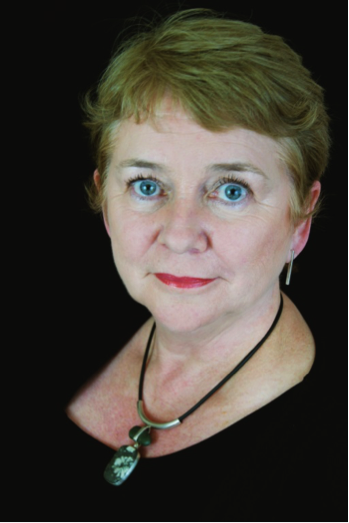- Details
- Published: 05 November 2015
By Margaret Easton
On September 29th, Statistics Canada announced that Canada now has more people over the age of 65 than under the age of 15. While the arrival of this demographic change has been anticipated for some time, the majority of businesses in Canada are not yet fully prepared for the consequences of this demographic shift to “societies of longer lives” (Staudinger, 2014). In this article, I want to focus specifically on how Canada’s financial services industry could respond more effectively to “societies of longer lives” by developing products and services for older adults able to accommodate both substitute decision making (currently the dominant model in Canada) and supported or assisted decision making, a model that is receiving increasing support internationally. I believe both will be needed in order to strengthen Canada’s financial abuse prevention strategies.
Canada’s financial services industry is increasingly aware of, and sensitive to, the magnitude of financial abuse in Canada and a number of excellent training initiatives are now in place to help identify and prevent financial abuse. For example, several of Canada’s large banks have recently produced excellent brochures that teach customers how to reduce their risk of financial abuse when using Powers of Attorney and Joint Bank Accounts, and RBC has a large group of existing and retired employees out in the community teaching older adults how to protect themselves from potentially abusive situations. Vancity has been teaching prevention of financial abuse in community centers for several years now, and also recently completed a survey attempting to identify the prevalence of financial abuse in Metro Vancouver. Prevent Elder Abuse Manitoba, in conjunction with TAMLO and CUSOURCE, has created an excellent video for credit union employees outlining the steps credit union employees can take to help prevent financial abuse. In addition, two private companies are also offering great resource material to help employees identify and prevent financial abuse: CU Training provides a wide range of training resources to Canada’s credit unions, and has had online courses in place for several years now that address financial abuse prevention, while WeGuideU has recently created an online course for professionals that addresses the prevention of financial abuse.

While these educational initiatives are both essential and commendable, more will be required if we are to succeed in helping older Canadians remain both financially independent and safe from financial abuse for as long as possible. In particular, more can and should be done with respect to the development of financial products and services. This approach has recently been adopted by a number of financial service providers, particularly in the U.S. and the U.K. I believe similar initiatives could prove effective in Canada and in the remainder of this article, I’d like to introduce four examples of products and services developed by financial service organizations that are proving successful in reducing financial abuse of older clients - two in the U.S., one in the U.K., and one closer to home in Vancouver’s Downtown Eastside. Each of these organizations has redesigned financial products and services in ways that have allowed older adults to remain in control of their financial assets while also obtaining assistance with decision making when necessary. Given the increasing realization that our current excessive reliance on legal tools such as Powers of Attorney and on joint banking accounts to assist older adults with decision making, can increase the risk of financial abuse and compromise autonomy and financial independence prematurely, a search for alternative tools to reduce financial abuse is overdue.
One organization that is receiving increasing attention for their efforts to reduce financial abuse of older customers while maintaining their financial autonomy is Bank of American Fork, a small community bank of 15 branches in Utah. American Fork began offering anti-fraud accounts for older adults in 2011 after learning that older adults in Utah were losing $1 million a day to fraud. Their service program - “AccountSmart Tools for Seniors”- includes several features that allow the account holder to remain in control of their finances while receiving assistance and support when required. With the AccountSmart service program older adults can: 1) grant limited Powers of Attorney; 2) provide designated helpers with “view-only access” to their accounts to help watch for fraud and unusual transactions and, 3) create second “helper accounts” to provide helpers with access to limited funds, all without losing control of their account.
While not banks or credit unions, True-Link Financial, a U.S. company, The Money Carer Foundation in the U.K., and The Bloom Group in Vancouver’s Downtown East Side, all offer a range of products and services that support assisted decision making. True-Link offers a range of products and services similar to American Fork that help older adults maintain financial independence safely and for as long as possible, while receiving assistance with decision making when needed. These include True Link Financial Protection – an online tool to view and monitor bank accounts that can be used by the account holder and other designated individuals, and True Link Cards – prepaid debit cards funded online or over the phone - that can be used by the account holder and designated caregivers to manage and limit spending in order to prevent unnecessary or unauthorized purchases.
In the U.K. The Money Carer Foundation offers money management for all vulnerable adults, not just older adults, and provides affordable personalised and structured money management packages, POA services, direct payments, and a “Carers Shopping Card”, a pre-loaded and “top-up “card that the account holder can give to designated carers to purchase everyday items while maintaining control of their financial assets. The Bloom Group, in operation in Vancouver’s Downtown Eastside since 1998, offers a range of services to lower income individuals including voluntary pension management, non-voluntary pension trustee services, and discretionary trust services. Each of these organizations has received national and international recognition for creativity and corporate social responsibility and each is making a positive contribution to reducing financial abuse.
The financial abuse of older adults is clearly a multi-faceted problem that will not be easily solved. Innovative products and services that can address the real and multiple financial needs of older Canadians while supporting financial autonomy will not eliminate financial abuse on their own. Nevertheless, as American Fork, True-Link, Money Carers, and The Bloom Group have demonstrated, these innovative products and services can effectively supplement and strengthen educational, legal, and social remedies for the prevention of financial abuse while simultaneously allowing older adults to maintain financial independence for as long as possible and as safely as possible. The majority of these products and services could, I believe, be incorporated into mainstream banking services in Canada with equally positive results. Companies that can effectively support the independence and quality of life for older adults while simultaneously reducing the risk of financial abuse in societies of longer lives will gain clients, enhance profitability, improve public relations, and avoid potential financial liability. With more Canadians over the age of 65 than under 15 in Canada, now would seem to be a good time to start.
References
- Staudinger, U.
- Bank of American Fork. https://www.bankaf.com/
- True-Link Financial. https://www.truelinkfinancial.com/
- The Money Carer Foundation. http://www.moneycarer.org.uk/
- The Bloom Group. http://www.thebloomgroup.org/
- Prevent Elder Abuse Manitoba. http://www.newswire.ca/news-releases/credit-unions-and-prevent-elder-abuse-manitoba-close-financial-literacy-month-2014-by-launching-new-program-to-help-confront-financial-abuse-of-seniors-516578021.html
- CU Training Inc. http://www.cutraining.com/
- WeGuideU. http://weguideu.com/
 Margaret Easton worked in financial services for thirty years with banks, trust companies, and credit unions. She has also obtained her Bachelor of General Studies, a Baccalaureate in Women’s Studies, a BC Instructors Certificate, and Master’s degrees in both Liberal Studies and Gerontology. She is currently pursuing her PhD exploring how gerontology, the humanities, and the arts and media can help to sustain personhood in old age.
Margaret Easton worked in financial services for thirty years with banks, trust companies, and credit unions. She has also obtained her Bachelor of General Studies, a Baccalaureate in Women’s Studies, a BC Instructors Certificate, and Master’s degrees in both Liberal Studies and Gerontology. She is currently pursuing her PhD exploring how gerontology, the humanities, and the arts and media can help to sustain personhood in old age.

















